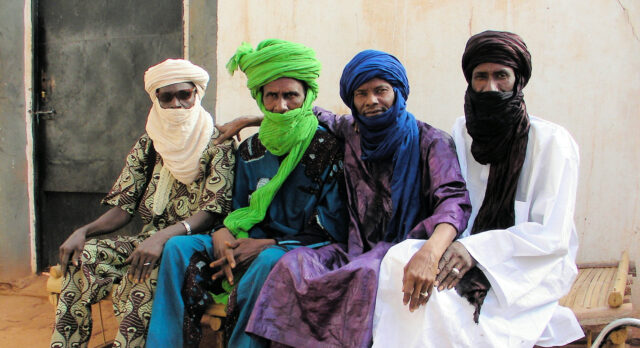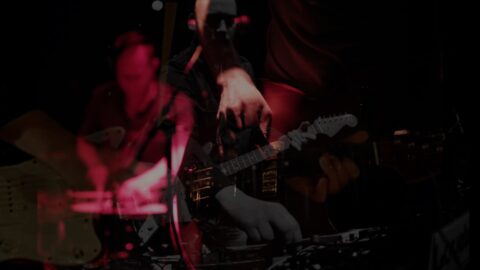The music of the nomadic Tuareg people of the Sahara, known as “desert blues”, was popularised by Tinariwen and Tamikrest, equipped with electric guitars. Al Bilali Soudan play indigenous African instruments and thus draw on the most raw roots. The electric amplification does not detract from the authenticity, but rather allows the penetrating sound of the tehardant lute, a variant of the better-known Malian ngoni and the forerunner of the American banjo, to shine through. Group leader Abellow Yattary was inspired by his father and uncle, who first introduced the world to Tuareg music in 1971 on entographic recordings. Yattary accompanied legendary guitarist Ali Farka Toure on his earliest recordings, and in 2010 he gave a master class at Berklee School of Music. The group's music has a similar power to today's desert blues with guitars, but offers a hidden layer: subtle melodic ornaments that take you to the realm of dreams and African jinns.
The members of the group come from Timbuktu, the northernmost city in sub-Saharan Africa, which for centuries served as a transport terminal for caravans travelling to Marrakech. They all come from a dynasty of musicians whose music evolved into today’s “desert blues”. In the Berber tamasheq language, the style is referred to as tashigalt, and is based on a continual dialogue between the three-stringed lute tehardent and a rhythm tapped out on dried gourds. The origins of the style date back to at least the 16th century, when it was part of various festivals: at harvest time, music gave warriors courage before battle and welcomed them on their return, celebrated the nobility and healed the sick. The style continued to transform over the centuries as it interacted with other ethnic groups. 70-year-old bandleader Abellow Yattara was born in Timbuktu and learned to play from his father. Another pillar of the group is Aboubacrine Yattara, ten years younger, who is Abellow’s uncle despite the age difference. The first part of the group’s name comes from the Muslim saint Bilal ibn Rabah of Mecca, who was a contemporary of Muhammad and famous for his powerful voice with which he called the faithful to prayer. The word Soudan is a French transcription of the name Sudan, which Europeans generally used to refer to countries in sub-Saharan Africa. The colonial name for present-day Mali was French Sudan.





















